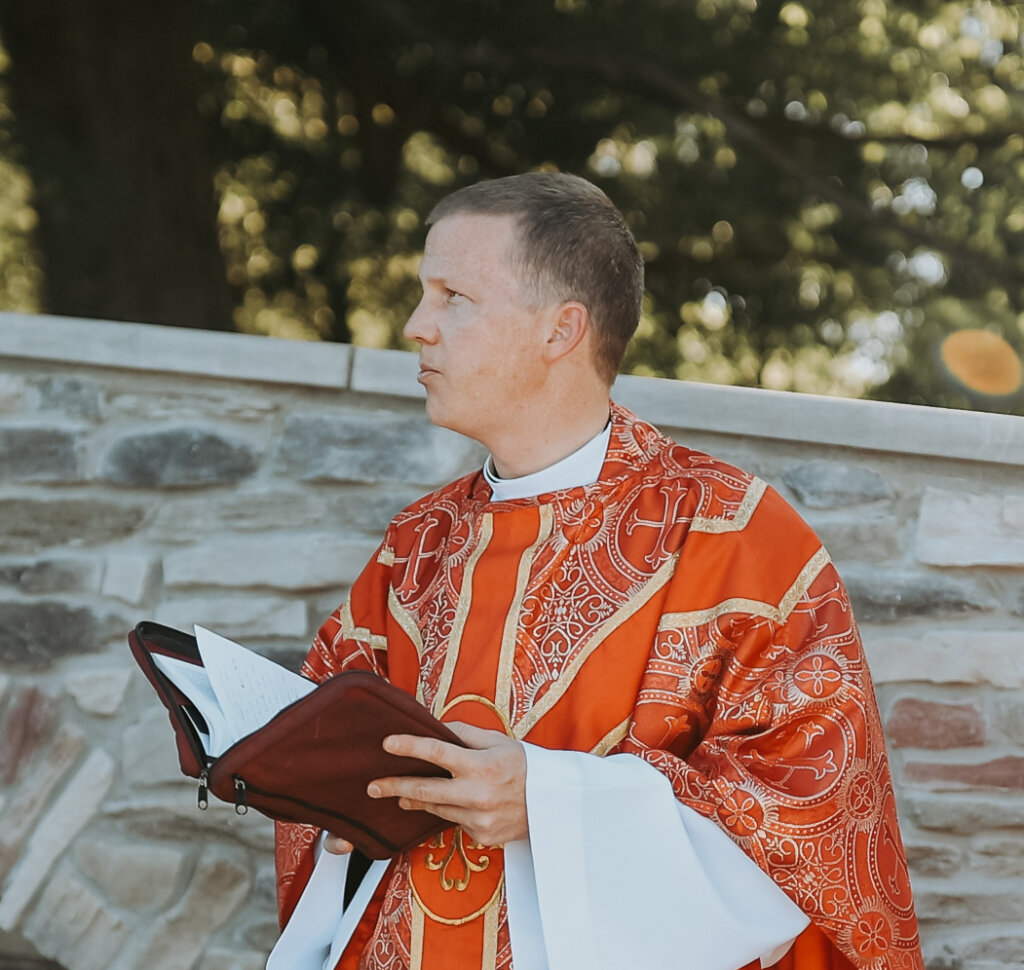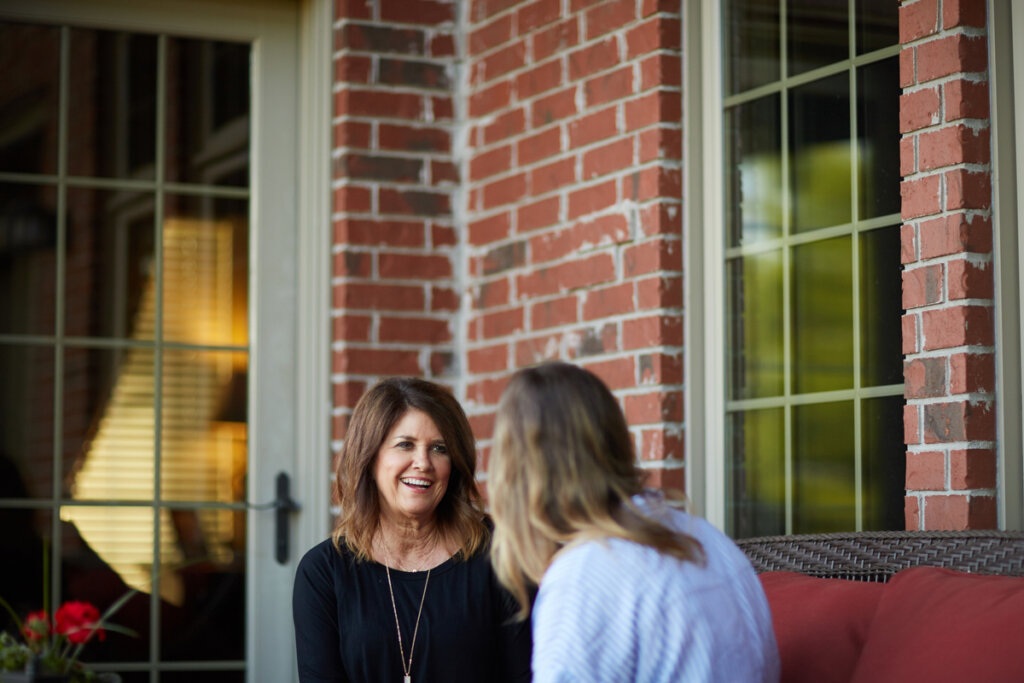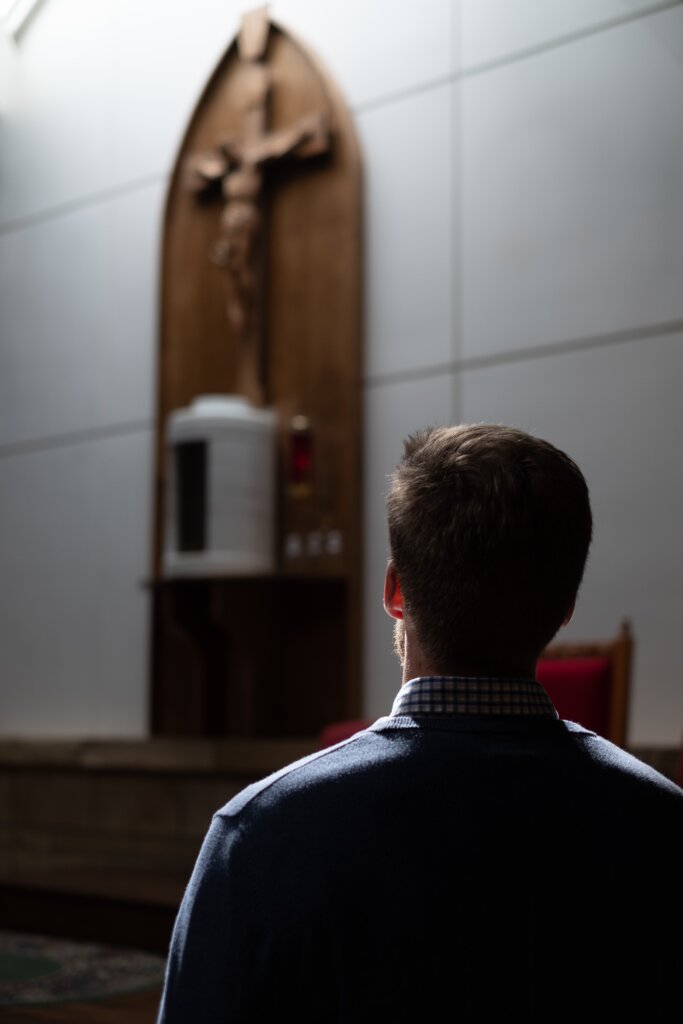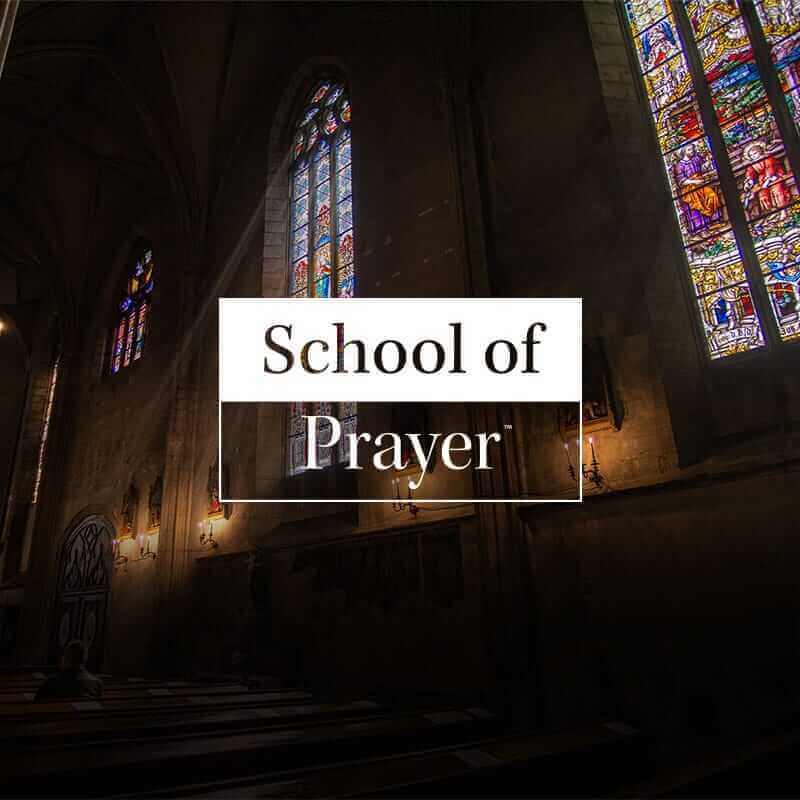![Don’t Have A Spiritual Director? 5 Things You Can Do To Find One [Video]](https://www.goodcatholic.com/wp-content/uploads/2023/02/HTRTB-Lesson-8-Ellenrieder-Cropped.jpg)
If you’re like me, you don’t have a spiritual director.
Don’t worry. Most Catholic laymen don’t have a consistent spiritual advisor.
Still, having the assistance of a wise and experienced mentor to help us see where God is leading us…helping us grow in prayer…and guiding us on the path of holiness is something we can all benefit from.
God Often Helps Us Through Other People
If we look at salvation history, we see that God often directs souls—and answers their prayers—through another person, who acts as their guide. God does not always speak to each person directly and tell them everything they must do without reference to someone else’s wisdom. Even Moses received advice from his father-in-law! (Exodus 18) The Mother of God obeyed God’s will for her through the direction of the Angel Gabriel and St. Joseph.
Many of the saints had spiritual directors. St. John Climacus said that to some degree we all need the direction of another in the spiritual life:
Those who have surrendered themselves to God deceive themselves if they suppose that they have no need of a director. Those who came out of Egypt had Moses as their guide…[they needed] a helper, an angel, so to speak, or at least one equal to an angel. For in proportion to the corruption of our wounds we need a director who is indeed an expert and a physician.
St. John Climacus
St. John Cassian gives us an example of spiritual direction in the life of St. Paul:
When Christ Himself spoke to Paul and called him, He could have opened his eyes at once and made known to him the way of perfection: instead He sent him to Ananias and told him to learn from him the way of truth, saying: “Arise and go into the city, and there you will be told what you must do” (Acts 9:6).
In this manner He teaches us to be guided by those who are advanced on the way, so that the vision rightly given to Paul should not be wrongly interpreted; otherwise it might lead later generations presumptuously to suppose that each individual must be initiated into the truth directly by God, as Paul was, and not by the fathers.
Who, then, can be so proud and boastful as to be satisfied with his own judgment or opinion, when St Paul himself admits that he needs the advice of those who were apostles before him? All this shows with complete clarity that the Lord reveals the way of perfection only to those guided to it by their spiritual fathers. This accords with what He Himself has said through the Prophet: “Ask your father, and he will show you; your elders, and they will tell you” (Deut. 32:7).
St. John Cassian
It’s the same way with us. God uses other people to guide and direct us.
But how do we obtain spiritual direction?
Here are five tips to help you!
1. Ask God for help.
We often forget that Jesus tells us, “Ask and it shall be given unto you” (Matthew 7:7). When it comes to our spiritual lives, rest assured that Our Lord wants us to grow in love for Him and so, when seeking a spiritual director, we should ask God first: “Lord, do you want me to have a spiritual director? If so, please lead me to the one who can direct me!”
In The Ways of Mental Prayer, Rev. Dom Vitalis Lehodey says,
In the spiritual life there are two great principles which should never be forgotten: Without grace we can do nothing; with it we can do all things. Sometimes it anticipates our desires; ordinarily, God waits till we ask for it. This is a general law thus expressed by Our Lord: ‘Ask, and it shall be given to you.’ Prayer is, therefore, not only a precept, it is a necessity. God places the treasure of His graces at our disposal, and its key is prayer. You desire more faith, more hope, more love; ‘ask, and it shall be given to you.’ Your good resolutions remain sterile, resulting always in the same failures: ‘ask, and it shall be given to you’. Precepts are numerous, virtue painful, temptation seductive, the enemy ruthless, the will weak: ‘ask, and it shall be given to you.’
Rev. Dom Vitalis Lehodey
There might be a variety of unavoidable circumstances which prevent us from finding a spiritual director. This should not be cause for anxiety or concern—God is aware of our circumstances. He can give us the guidance we need through other means, if we ask Him. We can always ask God to show us His will through the people we already have in our lives; to this end, it’s important to foster good spiritual friendships with other devout Catholics, such as fellow parishioners.
Praying in a consistent way for a spiritual director, we can have confidence that God will answer us in some way.
2. Ask your parish priest.

The first person to turn to for spiritual direction is your parish priest.
You might already have a relationship with your priest and feel comfortable asking him, but even if you don’t know your priest well, it is fine to ask him if he can be your spiritual director.
Since many parish priests are often overwhelmed with many duties, it might be helpful to phrase the question like this: “Is there someone you can recommend to give me spiritual direction, if you are unable?”
Not only does this take pressure off your parish priest, but it also keeps you from feeling disappointed if he can’t be your spiritual director—and it gives him the chance to consider a recommendation for you.
A good friend told me that when she asked her parish priest to be her spiritual director he was unable to accomodate, but he gave her the name of two other priests who were available for spiritual direction in her diocese! She was really grateful.
A spiritual director could be our pastor or another priest, our confessor (the priest from whom we regularly receive the Sacrament of Reconciliation), a religious (monk, friar, or nun), or an experienced and well-formed lay person.
The Catechism of the Catholic Church has this to say about seeking and finding a spiritual director:
The Holy Spirit gives to a certain of the faithful the gifts of wisdom, faith, and discernment for the sake of the common good which is prayer (spiritual direction). Men and women so endowed are true servants of the living tradition of prayer.
According to St. John of the Cross, the person wishing to advance toward perfection should ‘take care into whose hands he entrusts himself, for as the master is, so will the disciple be, and as the father is so will be the son.’ And further: ‘In addition to being learned and discreet a director should be experienced… If the spiritual director has no experience of the spiritual life, he will be incapable of leading into it the souls whom God is calling to it, and he will not even understand them.’
Catechism of the Catholic Church, 2690
3. Ask a well-formed lay person.

It could be that, for the present time, a priest or religious person is unable to be your spiritual director. Currently, this is the case for me.
Even though I have no regular spiritual director, I can still seek advice for particular problems. I turn to two holy friends who I trust because I know that they are well-formed individuals. By well-formed I mean that they receive the Sacraments regularly (they both attend Mass almost every day and go to confession at least once a month) and they devote themselves to daily prayer. I know that when I turn to them with a question or with an appeal for prayer, they will turn to God with that request and help to guide or advise me in whatever way they can.
We can ask God to send us good and holy friends whom we can trust. We should always turn to God with this need—we can never assume that just because we are close friends with someone, they can be our spiritual guide. The saints caution us by telling us to be prayerful in seeking a person for spiritual advice:
Employ all diligence and use the greatest circumspection in finding a man who may serve you as a very sure guide in the work of leading a holy life which you wish to undertake. Choose one who knows how to show souls of good will the straight road toward God.
Saint Basil
Saint Francis de Sales also uses strong language about seeking spiritual guidance:
I say [choose one] among ten thousand, for there are fewer than one would think capable of this office [of spiritual director]. He must needs be full of love, of wisdom and of discretion; for if either of these three be wanting there is danger. But once more I say, ask such help of God, and when you have found it, bless His Holy Name; be stedfast, seek no more, but go on simply, humbly and trustfully…
St. Francis de Sales, Introduction to the Devout Life
4. Seek out the saints and other Catholic resources.
There are many resources for those who are unable to find a good spiritual director.
As Catholics, we have recourse to the vast treasury of saints: their writings have provided generations of Catholics with wisdom and practical advice on how to navigate the spiritual life.
St. Francis de Sales, a holy bishop and Doctor of the Church, made it his life’s work to encourage the laity in their pursuit of holiness according to their state in life. His classic work, Introduction to the Devout Life, is an excellent manual of detailed spiritual direction for the layperson.
Other books to assist in the spiritual life are those devoted to uniting our will to God’s Holy Will. Abandonment to Divine Providence, Trustful Surrender to Divine Providence, and Into Your Hands, Father are three books that speak about discerning God’s Will and uniting ourselves to Divine Providence.
The Examen Prayer is a book devoted to Ignatian spirituality and to the methodology of praying in a way that has helped countless Catholics throughout the ages.
Spiritual retreats, such as those of Opus Dei, can also be helpful as we are seeking spiritual guidance. Silent retreats, especially, in which a priest or religious directs participants, are wonderful ways to draw close to Our Lord and seek spiritual guidance in prayer and discernment.
There are also many virtual spiritual retreats that can provide spiritual benefits.
The Good Catholic series School of Prayer is another wonderful resource, with one entire day (Day 16) devoted to the topic of spiritual direction. You can find that series, and all of the Good Catholic resources, here.
5. Be obedient to God’s Will.

Fidelity to grace is essential for those who wish to grow in the Christian life. This means that we must be obedient to God’s will and to the light He gives us in prayer. When we are obedient to God’s grace, He gives us more graces.
However, being obedient is easier said than done.
While obedience to God is the foundation of the Christian life, it is also a tremendous challenge. In order to be obedient to God’s will, we must know what His will is. Perhaps we cannot properly discern the circumstances of our own lives or we do not clearly see God’s hand or the appropriate action we must take. Navigating the ups and downs of our prayer life is a life-long pursuit. Even when our circumstances are such that we do not have a spiritual guide, we must still be obedient.
How do we do that?
By doing what we’re supposed to be doing. In other words, by fulfilling the responsibilities of the vocation which God has given us. Obeying the Ten Commandments, staying close to the sacraments, and remaining close to Our Lord in prayer are ways in which we can be obedient in everyday life.
Don’t give up.
Due to human weakness, we are all susceptible to poor judgment, to being led astray by our disordered emotions, or to being deceived by the lies and temptations of the Enemy.
For all of these reasons, it is good to have the assistance of a wise and experienced mentor to help us. If circumstances prevent us from having a spiritual guide, we still cannot give up!
God will never leave us alone. He is with us always and wants nothing more than for us to come to Him with every request. So let us continue to pray for a spiritual director, turning to God with all of our needs, and knowing that in all things, His Grace is sufficient.


